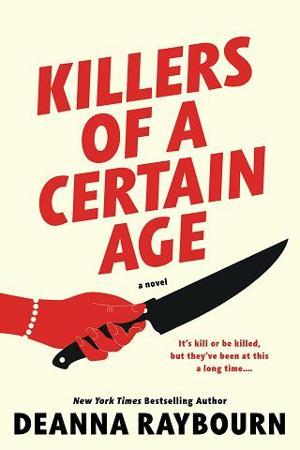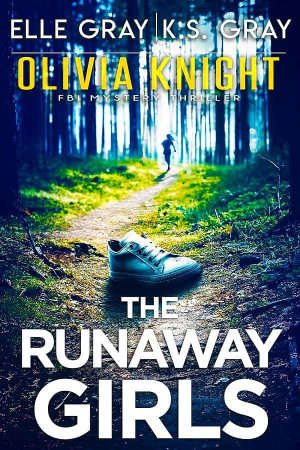Chapter Twenty-Eight
CHAPTER TWENTY-EIGHT
The party actually got started two days later. It took some time to make preparations and pack our bags. Akiko was not at all thrilled that we were leaving again, and Minka threw a full-on pout.
“Why do you not let me come with you? I am very strong.”
“You are strong,” I agreed as I finished throwing things in a bag. “So strong that it’s best if you stay here and protect Akiko. She’s not as tough as you are,” I said, lying only a little. “And we’ve taken every precaution to make sure it’s safe here, but just in case, she might need some looking after. You can do that, right?”
Minka sulked but she looked secretly thrilled that I had put her in charge.
“I will teach her duets,” Minka said, pulling up Frozen on her laptop. “She will be Anna. I am Elsa.”
Akiko still seemed a little dazed, so maybe the idea of sitting around having a Disney sing-along wasn’t the worst idea. Besides, somebody had to look out for Kevin.
We used a fresh set of papers to hop the ferry from Dover to Calais and took the bus into Paris, arriving on a chilly evening that was spitting sleet. Paris is a beautiful city when she feels like it, and that evening she was spiteful. We were all wearing jogging suits with clunky white tennis shoes and fanny packs, a group of German lady tourists intent upon the winter sales. We had found a moderately priced hotel on the edge of the 14th arrondissement, a few blocks from the entrance to the catacombs. The morning after we arrived, Natalie and I put on our curly grey wigs and took our fanny packs to the main entrance in the Place Denfert-Rochereau. There was a wait while everyone passed their belongings through security, and a single guard in a black coat surveyed the snaking queue.
“That man looks like Tom Hardy and I am dressed like Jessica Tandy,” Natalie hissed.
“You are also working,” I reminded her. I gave her a little shove to push her up in the line.
“There’s a rumor Tom is going to be the next James Bond. He could shake my martini anytime,” she said, waggling her eyebrows. She had powdered them white, but they were still effective.
“Give your libido a rest,” I said. “And you’re supposed to be speaking German.” The Paris guide I was carrying had a German flag emblazoned on the front and I tapped her with it.
“Ja, meine herrische Dame,” she said, saluting.
I pushed her again and in a few minutes we were through the security queue. A bored employee sat on a stool, recording the number of entries on a silver clicker as we rebuckled our fanny packs. There was nothing more interesting in them than wallets stuffed with coupons and credit cards, and a few toiletries and small craft projects each. I was also carrying a pair of plastic ponchos printed with Eiffel Towers bought cheaply from a sidewalk vendor just off the Pont des Arts. We’d made a stop at a sporting goods store for a few extras including kneepads, neatly hidden under our jogging pants. The catacombs tours were self-guided, and we started down the tall circular staircase, descending 131 steps until we hit stone. The air was dank and chilly, and there was an odor unlike anything I’d ever smelled before.
“What the hell is that?” I muttered in Natalie’s ear.
“Death, darling,” she said.
But this wasn’t the kind of death I was used to. We dealt it out, quick and clean. Depending on whether the mark had been shot or stabbed or poisoned, the smell would be different. Blood was sharp and metallic; poison could be pleasant—I had a soft spot for botanicals. Hang around too long and you’d smell other, worse things as the body settled into the relaxation of death. But the first few minutes could be perfectly tolerable if you weren’t too squeamish about the odor of blood.
Blood, I could handle. But Mary Alice had a point about the bones. There was a short exhibition on the history of the catacombs, explaining that the crowded cemeteries had become vectors for disease by the time of the French Revolution and a plan had been formed to exhume the dead and relocate them to an ossuary. Approximately six million of them had found their way to this city of the dead. Then we turned a corner and WHAM. Bones from the word go. The catacombs were a series of low, wide chambers with bones piled in patterns against the walls, maybe six feet deep. Each room opened onto at least one other, with heaps of bones locked behind fences. Some of the rooms were themed—nothing but piles of skulls, grinning at the visitors. Beside them was a plaque reading, stop—this is the empire of death. I hoped there were replicas in the gift shop because I wanted to buy one for Mary Alice to hang in her kitchen.
“This must be the femur room,” I said as we turned a corner and came upon a heap of heavy, long bones with knobby ends.
We paused, making a show of peering interestedly at a set of bones as a group of Canadian tourists moved past, snapping pictures as they went. One girl fell a little behind, posting her selfie (“#romancingthebone”), and I fought the urge to trip her.
When they had moved on to the next room, Natalie peered back the way we had come and gave me a quick signal. She led the way around a lacy pillar of vertebrae to a small gate set in the stone wall. I pulled a set of circular knitting needles out of my fanny pack. The work in progress was a Möbius scarf in a dull, stony shade of wool. Mary Alice had prepped it, and she had explained how to unravel the scarf, popping the stitches free until the needles were bare. A quick twist and the ends of the needles were unscrewed. Inside each was concealed a thin piece of sturdy wire, and I handed them over as Natalie whipped a credit card out of her wallet. I pressed the corner and it lit up, a miniature flashlight we’d found at the hardware store where we’d bought the wire. She bent to work, wriggling the wires into the keyhole of the gate. She closed her eyes and did it by touch while I held the light steady.
From the room beyond, I could hear the faint sounds of a tour guide reciting facts in Japanese. I didn’t hurry Nat along; I just kept the light pointed where she was working and listened as the noises of the tour group got louder. I could make out the shutter clicks of their camera phones, the rustle of their raincoats.
Natalie swore softly.
“You’ve got about four seconds,” I said finally.
She closed her eyes again and took a deep breath, flicking her wrist. The lock turned and she yanked the gate open. The metal made a hideous scraping noise, but we’d come too far. We dove inside, pulling the gate closed behind us and flinging ourselves flat on the ground. There was a tiny depression there and the gate was deep in shadow. As long as nobody came close to investigate, we could wait until the tour group passed through and then go on our way.
We lay next to each other, eyes squeezed closed, hardly daring to breathe. Suddenly, I knew we weren’t alone. Squeaky footsteps were coming closer, and when I peeped through my eyelashes, I saw two small sneakers, lights blinking around the soles.
A small face bent to peer through the bars of the gate. It was a boy, maybe seven or eight. “Who are you?” he demanded in Japanese.
“A lady demon. And I’m going to eat your soul,” I said, smiling. I made a claw with my hands and he ran away, shrieking for his mother.
He tugged at her coat, pointing towards us as we hunkered in the shadows, but his mother gave him a scolding for telling lies and shoved him into the next room.
Natalie forced herself to her feet, brushing at her clothes. “Was that really necessary?”
“It got rid of him,” I said, tying the end of the yarn to the gate. I tossed her one of the plastic ponchos. “Now let’s go exploring.”
 Fullepub
Fullepub 



